My Gut Feelings Tells Me…

Everybody mentions Steve Jobs when they want to win an argument about how it is possible to release products based on intuition alone. Indeed, Steve Jobs is the man behind some of the great inventions that have changed the tech world and how we consume data and media. Yet, the fact that everyone quotes the same name all the time proves to me one thing:
This man is a very rare anomaly, and very far from the frequent, “common” people, like you and I. And by the way – even Steve Jobs made some severe business mistakes and had some wrong assumptions about the market if you examine his career carefully. (Feel free to Google this, as this is not a post about Steve Jobs… :-))
What I’m trying to say here is that it’s rare to win based on intuition alone.
By contrast, today it’s very popular to mention that your company is ‘data driven’ and all the decisions you make are based on data. This can also be taken to the extreme as I’ve personally witnessed more than once, where intuition and common sense are being totally ignored.
Today I’d like to provide my personal take on intuition vs. data and provide the guidelines as for when you should use each. But first things first:
What does it mean to use intuition in business?
There are several definitions to intuition, all are pretty much the same so I’ll just pick the one from Psychology Today (see here):
“Intuition is a process that gives us the ability to know something directly without analytic reasoning“
In your day-2-day life your intuition is the voice within you that whispers to you very quietly every here and there when you are unsure which option to choose or what to do next.
It can tell you, for example, that you can’t trust a person, even though you just met him for the first time. It tells you that it’d be more beneficial to choose option B over option A, even though you know very little about each of the options. Intuition also can tell you that it is worth heeding the advice of someone even though they are much younger and less experienced than you. And there are a lot of other use cases, of course.
When it comes to business – intuition may lead you to pursue opportunity A over opportunity B, even though they look quite the same in terms of market size, potential upside and so forth. Your business intuition may also help you quickly disqualify inappropriate candidates even though on paper they seem quite qualified. Your business intuition can also help you bet on a feature when there is no data to support or dismiss it. And of course – there are plenty of other use cases, some which we will discuss shortly.
What’s common to all sorts of intuition is the inability to explain ‘why’. When asked – “why are you leaning towards a certain option?” – The only thing you’ll be able to answer is – “my gut feeling tells me so…”.
Leaning on data
On the other hand – when you are considering two options and there is concrete data that supports one of the options over the other – it’d be very hard to lay a strong case as to why one should choose the other option. After all – the data doesn’t lie. Data is objective. Data reflects everything we know and recorded about past choices and their results. It’d be silly to ignore data when it exists then. Not so? Well – everything said here is true… with some disclaimers. Let’s see what I mean.
Data VS. Intuition
As we’ll shortly see – it’s not all cut and clear. I will suggest my approach towards the utilization of the two towards the end of the post, but first – let’s discuss the pros & cons of each:
Intuition driven decisions – pros & cons
Pros:
- Fast (immediate, real-time and doesn’t require any collection of data in advance)
- Simple (it’s clear what is being pointed out as the right choice)
Cons:
- No true evidence exists to support such decision
- Our manipulating self can often disguise our fears and subconscious wishes as intuition
- Some may simply not believe in this concept at all, and hence won’t accept decisions made based on it
Data driven decisions – pros & cons
Pros:
- Backed up with evidence
- Highly favored by logical people
- Hard to argue with
Cons:
- Can rarely explain ‘why’ people have chosen to take a specific action
- Requires planning of the data points to be collected in advance
- Requires the right data points to be collected in advance
- Can point out to the wrong conclusion if collected and structured wrongly
- Any changes made to the original question or any new questions asked – may require redesigning and recollecting the data again
When intuition and data can fail you
Intuition and data have both served me greatly during my career. There are countless such examples.
However, now I’d like to provide two real life examples that happened to me, which shows how each failed me in its own way.
When my ‘intuition’ turned out to be wrong
In my early days as an entrepreneur my partner and I went to look for angel investment. We met many such private investors, and at one point one of the investors showed an interest, but later, after the meeting, mailed us a long list of very tough questions he wanted an answer for. I saw the list, I read about the investor on the web and I told my partner we shouldn’t waste our time here. I told him that the investor’s questions show he has no intention of investing.
Luckily, my partner didn’t heed my advice. He answered all the questions in full detail and long story short – after a few additional meetings – the investor did put money in and turned out to be an awesome investor.
Looking back on this case – I believe I confused my ego and superstitious beliefs (that I formed after reading various opinions about this investor on the web) with intuition. It wasn’t intuition after all that pushed me towards walking away.
When the data turned out to be misleading
In one of the companies I worked for – we showed ads to users. One specific ad, for some reason, was shown to all of our users zillion times. Really, each time I opened the browser – it was there. As the product person in charge – I went to the team responsible for it and asked them ‘why’. What is the sense in showing the same ad to the user dozens of times? Clearly, if they haven’t clicked it after the first 5 times it was shown to them – they are not interested. Let’s use the ad slot for a different ad and create an opportunity to make some more buck.
To my surprise they told me: “well… we run our models and the data shows that if we persist and show it at least 50 times – eventually it will be clicked”.
Those were very intelligent people talking, so it was very hard to argue with and push back.
However, after giving it a lot of thought I decided to ignore the data and overruled their decision. Why?
First – because the data can’t explain why the users eventually clicked on the ad. I suspect many of the users, like myself, simply clicked on it so it would go away finally…
Second – it goes too far against any common sense. We are not robots, we are humans. Do you know any human who has been offered something which they turned down 50 times before, just to accept it on the 51+ time they were offered to? I don’t know such a person – so to me, it was clear that the interpretation of the data was wrong.
So when to use each?
Well, I am a true believer of intuition, and I also believe intuition is almost always right. I see couple of big issues with following blindly your intuition though:
- The first, like we’ve seen above, is that there are other parts of your (sub)consciousness who would be happy to impersonate your intuition. If you are not skilled enough with telling the difference, you could confuse your so-called ‘intuition’ with fears, inner beliefs and superstitious opinions. This could end up very bad for the path you’ve chosen.
- The second is that although intuition is fast & simple by nature, it doesn’t ‘like’ to delve into the details. Intuition, from my experience, tends to stay ‘high level’ and let you figure out the details yourself. It means it can only take you ‘that far’. And the problem is – you can’t always tell when you’ve reached the borders of your intuition and now cross it to the realms of arbitrary opinions.
Because of the two above (and mainly because of the second) my approach is the following:
Intuition usually points out to where the gold is, but for figuring out the details – I need data.
For example – if you are facing two possible solutions to a customer’s pain, and you have no idea which one may result in a better outcome – place a bet based on your intuition. Build the smallest MVP you can do, put it in front of the customer and start getting data as for how to move forward and improve.
Another example – if you received 10 resumes for a position you opened and you want to spare your time and not interview the whole 10 – skim quickly through those resumes and briefly check with your intuition what you feel about each. Pick the top 3 candidates according to your intuition, even if they do not exactly meet the criteria (at least on paper), or not necessarily graduated from the right school or profession. Start the process and gather signals (data) as for who would be the best fit.
As you’ll observe – it takes some time to understand when it’s your intuition that speaks and when it’s something else. So you should expect to make some mistakes – but that’s ok.
Investing in listening to your intuition is a long term investment with very positive ROI to both your business and personal life.
As for the data – needless to say it serves as an invaluable resource for making the right product decisions. We are simply talking about a different set of decisions
For example – I probably wouldn’t rely on data for betting on future features or products, unless I have enough signals that strongly points towards a specific direction – but that’s not often available. However, I’d definitely rely on the data for understanding which variant results in better engagement with the users – A or B. E.g. – the data is very useful for understanding how features perform and how to improve them after they are released.
Data is also the cornerstone of any data-science teams for building and designing models that eventually can result in better prediction or classifications. Eventually those will result in improving your product’s KPIs if applied correctly.
So data is never to be underestimated as long as it’s structured correctly and collected properly…
But that’s a post for a different time 🙂
That wraps up the post for today.
If you found this post/series useful – feel free to let me know in the comments. If you think others can benefit from it – feel free to share it with them.
Thank you, and until next time 🙂
